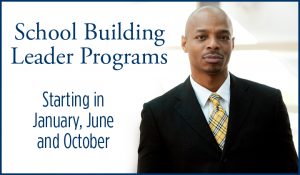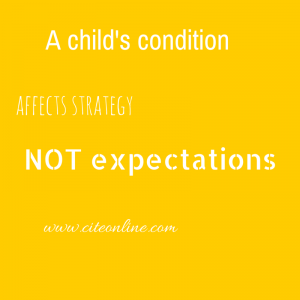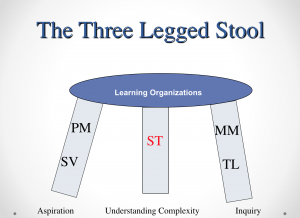
A School Administrator’s First Job
The College of St. Rose and CITE believe and teach certain core principles.
#1 A School Administrator creates a Learning Organization.
Listen to this post!
School Administrator Program Structure
 You probably haven’t noticed, but there’s a tacit division of labor when we talk about our programs. We know you are a working professional, and we don’t want you in an expensive classroom when you are tired from having worked a full day, just because it might be more convenient for a college’s full time professors. The CITE staff promotes the programs based on the structural reasons we believe make the programs better than your other choices. So our websites talk about our low cost and our weekend and summer weekday scheduling.
You probably haven’t noticed, but there’s a tacit division of labor when we talk about our programs. We know you are a working professional, and we don’t want you in an expensive classroom when you are tired from having worked a full day, just because it might be more convenient for a college’s full time professors. The CITE staff promotes the programs based on the structural reasons we believe make the programs better than your other choices. So our websites talk about our low cost and our weekend and summer weekday scheduling.
School Administrator Program Content
 We then leave it to our graduates to (indirectly) talk about the program content. Through our interviews and podcasts, we hope to give you some sense of what has been of value to people like you. But in the next two blog posts, I am going to talk more explicitly about some of the content of the program.
We then leave it to our graduates to (indirectly) talk about the program content. Through our interviews and podcasts, we hope to give you some sense of what has been of value to people like you. But in the next two blog posts, I am going to talk more explicitly about some of the content of the program.
The Challenge of a School Administrator
Administrators face enormous challenges. Our schools are in trouble. The pace at which the world is changing is only accelerating and our kids are bringing a greater host of issues that interfere with learning given traditional methods of teaching. Further, the proposed solutions from “educational reformers” who have lots of power over the educational policy agenda are always controversial and arguably often counterproductive.
School Administrator: Job #1 – CULTURE
So our program content starts with the question of what it takes to be a successful school administrator within the given context. The program’s initial insight is that culture is decisive.
Dr. Richard Hawkins, the director of the program and the architect of much of the curriculum, has a series of what he calls “tattoos,” or key ideas that are so important that administrators should keep them as close to hand as a tattoo is to our skin. He has this great tattoo about culture: “The culture always wins, especially if you do not attend to it.”
He also says, “If your organization’s culture is not prepared for change, there will be no change.”
What is the Best Kind of Culture for a School Administrator to Model/Foster?
So if culture is decisive, the next questions are what kind of culture do we want to create and how do we get there? Here we draw heavily on the work of Peter Senge and his associates. The seminal work is a great, and readable book called The Fifth Discipline. Senge has then applied this work to education since the 1990’s, and the basic book is called Schools That Learn.
A Learning Organization
The St. Rose/CITE program believes that schools need to create what Senge calls “A learning organization.” A learning organization has five core disciplines:
- personal mastery
- shared vision
- systems thinking
- mental models
- team learning
Why is this the right model for a school?
A learning organization is a fit for at least three reasons.
- First, it is really hard to teach the importance of education if you aren’t living it.
- Second, schools are called to react to a rapidly changing world, and flexible organizations deal with change better than rigid ones. One of the purposes of creating a learning organization is to generate flexibility.
- Third, learning organizations are characterized by much more emotional engagement on the part of employees. You need emotional engagement to be a successful teacher; mere compliance and doing assigned tasks isn’t going to cut it in as complex an environment as a classroom.
How a School Administrator Creates a Learning Organization
The program then takes on the question of how to create a learning organization. That is the task of leadership; it’s what we teach when we talk about how to do supervision, how to utilize curricula, how to run the school’s finances, how to create programs, how to interpret the data and utilize it from tests etc.
That is the task we deal with in our courses on educational leadership, from our SBL and SDL through our Masters.
Does what I have written above resonate for you? Can you see yourself being a leader? If so, please contact us about the program.
* We are opening classes in Staten Island and Suffolk. Call for info 877-922-2483 or email us!
What question can we answer for you? Call us! 877-922-2483 or email us!
CITE is the Center for Integrated Training and Education . For over 25 years, CITE has and continues to train TEACHERS (Early Childhood, Literacy, Special Ed, Grad Courses, DASA); COUNSELORS (School, Mental Health Masters, Advanced Certificate); and ADMINISTRATORS (SBL, SDL, Public Admin, Online PhD) in all five boroughs of NYC, Yonkers, and Long Island.





